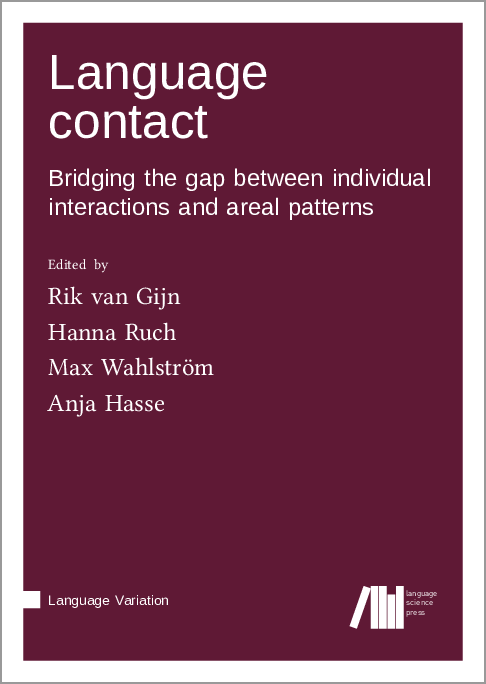In der letzten Zeit sind u.a. diese frei verfügbaren Titel erschienen:
Elements, Government, and Licensing: Developments in phonology
Florian Breit, Yuko Yoshida & Connor Youngberg (Hrsg.)
https://doi.org/10.2307/jj.332955
Elements, Government, and Licensing brings together new theoretical and empirical developments in phonology. It covers three principal domains of phonological representation: melody and segmental structure; tone, prosody and prosodic structure; and phonological relations, empty categories, and vowel-zero alternations. Theoretical topics covered include the formalisation of Element Theory, the hotly debated topic of structural recursion in phonology, and the empirical status of government. In addition, a wealth of new analyses and empirical evidence sheds new light on empty categories in phonology, the analysis of certain consonantal sequences, phonological and non-phonological alternation, the elemental composition of segments, and many more. Taking up long-standing empirical and theoretical issues informed by the Government Phonology and Element Theory, this book provides theoretical advances while also bringing to light new empirical evidence and analysis challenging previous generalisations. The insights offered here will be equally exciting for phonologists working on related issues inside and outside the Principles & Parameters programme, such as researchers working in Optimality Theory or classical rule-based phonology.
Language contact: Bridging the gap between individual interactions and areal patterns
Rik van Gijn, Hanna Ruch, Max Wahlström & Anja Hasse (Hrsg.)
https://langsci-press.org/catalog/book/279
https://doi.org/10.5281/zenodo.8269092
Contact linguistics is the overarching term for a highly diversified field with branches that connect to such widely divergent areas as historical linguistics, typology, sociolinguistics, psycholinguistics, and grammatical theory. Because of this diversification, there is a risk of fragmentation and lack of interaction between the different subbranches of contact linguistics. Nevertheless, the different approaches share the general goal of accounting for the results of interacting linguistic systems. This common goal opens up possibilities for active communication, cooperation, and coordination between the different branches of contact linguistics. This book, therefore, explores the extent to which contact linguistics can be viewed as a coherent field, and whether the advances achieved in a particular subfield can be translated to others. In this way our aim is to encourage a boundary-free discussion between different types of specialists of contact linguistics, and to stimulate cross-pollination between them.
Linguistik und Medizin: Sprachwissenschaftliche Zugänge und interdisziplinäre Perspektiven
Marina Iakushevich, Yvonne Ilg, & Theresa Schnedermann (Hrsg.)
https://doi.org/10.1515/9783110688696
Das Buch präsentiert die ersten Arbeitsergebnisse des wissenschaftlichen Netzwerks >Linguistik und Medizin< Patho- und Salutodiskurse im Spannungsfeld von objektivierter Diagnose, interaktiver Vermittlung und medialer Konstitution, gegründet 2017 und finanziert von der Deutschen Forschungsgemeinschaft. Aus unterschiedlichen linguistischen, medizinischen, historischen und soziologischen Perspektiven werden Prozesse der Wissenskonstitution, ‑aushandlung und des ‑transfers in Bezug auf Gesundheit und (psychische wie somatische) Krankheiten thematisiert. Mit Daten und Methoden der Gesprächs‑, Korpus- und Diskurslinguistik, der Medizin und der Soziologie werden aktuelle und gesellschaftsrelevante Fragestellungen in der Arzt-Patienten-Kommunikation, den ö̈ffentlichen massenmedialen Diskursen und in der Fachkommunikation in einem interdisziplinären Dialog bearbeitet. Im Fokus stehen einzelne Krankheitsbilder und deren semiotische Konstruktion wie Schizophrenie, HIV/AIDS, Alzheimer, Depression; mannigfaltige interaktive Praktiken z.B. der Empathiebekundung, der Aufklärung, der Emotionalisierung in Arzt-Patienten-Gesprächen; Prozesse der gemeinsamen Wissensaushandlung in Online-Foren; fachliche Konstruktionen von Vorstellungen zu Normalität und Abweichung.

